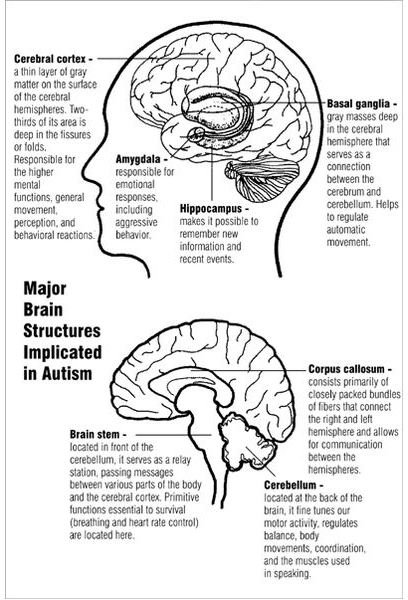Is PDD Hereditary from Mother or Father?
Is PDD hereditary from mother or father? Many new, and aspiring, parents are asking themselves this very question. According to Dr. Moshe Ipp, as referenced in the New England Journal of Medicine, 3 to 8 percent of families who already have a child with PDD will have another child with PDD. The genetic link isn’t fully understood, but it is being actively studied.
What is PDD?
PDD stands for pervasive development disorder. Several disorders fall under this category, including autism, childhood disintegrative disorder, Rett’s syndrome, Asperger’s syndrome, and pervasive development disorder not otherwise specified. In general, PDD refers to several disorders in which a person experiences developmental delays in several basic skills, such as communicating with others (specifically other children), socializing with others (specifically other children), and using their imagination. They often have difficulty understanding the world and are confused in their thinking. These conditions are typically recognized and diagnosed in children approximately three years of age.
Autism
Autism is a developmental disorder, described as non-progressive, in which individuals have symptoms concerning their communication, socialization, and behavior. This disorder is quite common and is thought to have genetic causes. The genes that lead to autism have yet to be identified, but it is believed that autism and PDD hereditary from mother or father is very likely. More males are affected with this disorder, so scientists believe that one of the X chromosome genes’ not working may be associated with this disorder, but some recent data states that this could be unlikely.
Childhood Disintegrative Disorder
This condition is rare and those with it will begin developing, both mentally and physically, at a normal rate. Between the ages of two and ten, the child will start losing the skills he has developed. They will also begin to lose control of their bladder and bowel, as well as lose their language and social skills.
Rett’s Syndrome
This disorder is also rare and those who are affected will experience the symptoms associated with PDD, as well as physical development issues. They tend to lose many movement or motor skills, such as the use of their hands and walking, as well as develop poor coordination. It almost always affects girls because of its link to an X chromosome defect.
Asperger’s Syndrome
This disorder affects children in a similar manner to autism. Children will have problems with communication and social interactions. They may also have a narrow range of interests. They do however, tend to have above average, or average intelligence, and experience normal cognitive and language development. These children may have trouble with coordination and concentrating.
Pervasive Development Disorder Not Otherwise Specified
This isn’t exactly a disorder, but it is a term that is used when a child is too social to be diagnosed with autism. Children with this disorder will still have trouble interacting with others, and with play and communication.
Resources
Ipp, M. Dr. (1997). Pervasive Development Disorder. Retrieved on January 29, 2010 from the University of Toronto: https://www.utoronto.ca/kids/pdd.html
Duke Center for Human Genetics. (2009). Autism. Retrieved on January 29, 2010 from Duke University Medical Center: https://www.autism-pdd.net/research.html
Medicine Net. (2010). Pervasive Development Disorders. Retrieved on January 29, 2010 from Medicine Net: https://www.medicinenet.com/pervasive_development_disorders/article.htm
Image Credits
Autism: National Institutes of Mental Health – Wikimedia Commons
